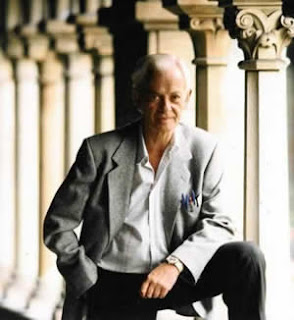Reviewed by Robert Hugill on 26 October 2020 Star rating: (★★★★★)
Rory MacDonald and the RSNO complete their survey of Thomas Wilson's symphonies with his first mature one and his final one.
Following on from their disc of the composer's Symphonies No. 3 & 4 [see my review], Rory MacDonald and the Royal Scottish National Orchestra have recorded Thomas Wilson's Symphonies Nos. 2 & 5 for LINN records.
Wilson's Symphony No. 2 was completed in 1965, a period when he was music lecturer at Glasgow University. The work was premiered by James Loughran and the BBC Scottish Symphony Orchestra at Broadcasting House, Glasgow in November 1965 and the work's critical success led to further commissions for Wilson.
The first movement opens with a slow introduction, marked 'Poco Adagio' which is quiet, dark and intense and leads to the movement proper marked 'Allegro potente'. Both sections have a sense of closely worked argument, for all the main movement's speed and drama. In fact, the whole symphony is based around material from the introduction, and this colours the whole work. The first movement seems to finish before the argument is finished, and the second movement seems to take a different approach to the same material, starting off bare and spare, rather eerie and intense. There is a tension to the opening section of the movement, as if waiting for something to happen and when it does the music transforms into rather a malign, but still sparsely scored, scherzo. The third and final movement returns to a faster, edgier rather Walton-esque sound world, yet is still has the sense of trying to work out the argument based on the opening material.
 |
| Thomas Wilson |
Wilson's Symphony No. 5 dates from 1998 and was his last completed score. It was premiered by the Scottish Chamber Orchestra, conductor Joseph Swenson, at The Queen's Hall, Edinburgh. The work is written in a single movement, for modest orchestral forces and is to some extent a re-working of a work, Mosaics, written in 1981 for the chamber ensemble Cantilena. Rather intriguingly the instrumental line-up for Mosaics includes a harpsichord part.
We start with cor anglais and timpani, we are not a million miles from the opening of Act 3 of Wagner's Tristan und Isolde, except the emotional atmosphere is more distilled and leads to a faster passage but the feeling of both is of restlessness and uncertainty. Wilson builds on this by keeping the material moving from the eerie opening to other spikier moments, and the atmosphere throughout feels tense and brooding. Like the earlier symphony, there is a strong sense of musical narrative and argument here, but throughout Wilson keeps up the tension and the sense of a disturbing atmosphere. Even when, in the second half of the work, the tempo and sense of drama increase, the restless atmosphere remains constant. The work is in a long single span lasting a fraction under 30 minutes, and throughout MacDonald keeps up the tension so that the whole movement unfolds in gripping form without any sense of sag.
The performances from Rory MacDonald and the Royal Scottish National Orchestra are terrific, in both works they capture the concentrated element of Wilson's writing, but also bring out the many incidental beauties of his instrumental writing and ear for orchestral colour.
When Thomas Wilson died in 2001 his friend and fellow composer John Maxwell Geddes commented, 'there is a distillation of Tom in his music. He was a national treasure. The nation has his music. Now get on and play it'. So it is terrific to find that Wilson's music is finally getting the performances and recordings that it deserves. The composer suppressed his early, Symphony No.1, so this disc means that Rory MacDonald and the RSNO have completed their recordings of Wilson's symphonies, but I do hope that they continue to explore the composer's output, whilst the orchestra has already recorded the Piano Concerto (with Bryden Thomson and David Wilde on Chandos but currently discontinued), the Violin Concerto (1993), Viola Concerto (1987) and Guitar Concerto (1996) still seem to be lacking in the catalogue.
Thomas Wilson (1927-2001) - Symphony No. 2
Thomas Wilson - Symphony No. 5
Royal Scottish National Orchestra
Rory MacDonald (conductor)
Recorded in the New Auditorium, RSNO Centre, Glasgow, on 10-11 September 2019
LINN CKD 643 1CD [54.23]
Available from Amazon, and from Hive.co.uk.
- The Soldier's Return: Opera Sunderland's powerful film premiere of Marcos Fernandez-Barrero's new opera - opera review
- Espiral: new music from Spain and Latin-America from Camerata Gala and Alejandro Muñoz - CD review
- The See Within from Belgian ensemble The Echo Collective - CD review
- A different part of the soul: Nicolas Hodges on recording the music of Sir Harrison Birtwistle and Beethoven for his latest disc - interview
- Engaging breath of fresh air and, frankly, fun: Messe de... Carmina Burana from the Estonian ensemble, Hortus Musicus - CD review
- Imaginative and engaging: Guildhall School's live streamed opera triple bill of Italian rarities - opera review
- L’Île du rêve: Reynaldo Hahn's first opera proves to be a charming lyrical interlude - CD review
- Two very different ways of seeing into the soul: Tabea Zimmerman in music for unaccompanied viola by Bach and György Kurtág - CD review
- A young man's response to the world today: Alex Woolf's Requiem released on Delphian - cd review
- O Ewigkeit, du Donnerwort: Music, neuroscience and fear of death in OAE's Bach, the Universe and Everything - concert review
- Late Beethoven from the Brodsky Quartet at Kings Place - concert review
- Home












No comments:
Post a Comment